The main aim of this book is to provide the reader with knowledge and understanding of some of the key concepts, doctrines and principles which make up that corpus of law known as constitutional law. Another aim is to develop a sound academic basis for the study of subjects based on public law, such as political science and international relations.
Principles of Constitutional Law
KSh 1,575.00
The main aim of this book is to provide the reader with knowledge and understanding of some of the key concepts, doctrines and principles which make up that corpus of law known as constitutional law. Another aim is to develop a sound academic basis for the study of subjects based on public law, such as political science and international relations.
Related products
-
A Text Book on Tax Law in Kenya
KSh 2,980.00A Text Book on Tax Law in Kenya is a treatise on Kenyan tax law. It is a reference book for the training of advocates, accountants, tax agents, consultants, business owners, public among other professionals interacting with tax matters. It is an indispensable handbook for any professional pursuing a career in tax including the decision makers, Judges, Magistrates, and Tax Tribunals. It is an extensive summary of the tax law in Kenya and the tax jurisprudence emanating from Kenyan Courts and Tax Appeal Tribunal.
-
Equity and Trusts-DAVID BAKIBINGA
KSh 2,800.00The book provides an overview of equitable principles in Uganda and links this with the maxims of equity and the distinction between equitable and legal interests. The book will benefit students offering Equity and Trusts
and Estate Planning in East African universities as well as legal
practitioners, insurance, social security and corporate operators. -
Procedure in the Law of Succession in Kenya
KSh 1,800.00One of the difficulties courts have been having in the past in dealing with the Law of Succession Act, had been with the issue of marriage. The Succession Act and the Marriage Act were to have come into operation simultaneously. This did not occur until almost 50 years later. The Marriage Act was gazetted on the 6 May 2014. Parliament amended and consolidated “the various laws relating to Marriage and Divorce and to connected purposes.”
-
A Guide to Criminal Procedure in Uganda
KSh 2,700.00This book has been written primarily for Police Officers, Public Prosecutors and Magistrates who bear the main responsibility for enforcing the law and administration of criminal justice. Police Officers will find the Chapters on Police Investigations, arrest, searches, and charges of special interest. Public Prosecutors should derive ample guidance from the Chapters on conduct of public prosecutions, control of public prosecutions, constitutional rights of accused persons, attendance of witness, conduct of trial before Magistrates’ Courts, and examination of witness. Magistrates should benefit by reading especially chapters on jurisdiction, pleas, bail, conduct of trials, preliminary proceedings, judgment, appeals and sentencing process.
-
Intellectual Property Law in East Africa
KSh 3,217.00The past half century in Uganda has witnessed both concern and interest in copyright and neighbouring rights. This is evident in the laws and treaties initiated by both the Uganda Government and the international community, aimed at enabling copyright holders to realize the benefi ts of their intellectual works.
-
Law of Financial Institutions in Kenya-Njaramba Gichuki
KSh 1,500.00The law of financial institutions in Kenya is contained in statutes as well as case law. The common law of England also plays an important role in the substantive law. Banking practice is elevated to the position of law (almost). The Central Bank of Kenya has powers to make guidelines and directives for the financial sector. When this is done, they operate within the confines of the law as the same are applied under the provisions of the Central Bank of Kenya Act, the Banking Act and the other relevant Acts.
-
Employment Law Guide for Employers
KSh 1,665.00The Industrial Court does in its endeavour to interpret the various sections of labour statutes. However, majority of these guidelines have not been made accessible to employers in a manner that is easily and properly understood and appreciated. This is because, even though there is an attempt to avail the decisions of the Industrial Court to the general public, the ratios and the guidelines thereof have not been analyzed in a short, concise and easier manner. This book seeks to address this gap by focusing on the realist perspective.
-
LEGAL PRACTICE MANAGEMENT
KSh 3,500.00This book seeks to illuminate the expansive nature of legal practice in the society. It is also aimed at provoking further debate, research and publication. The author draws from her knowledge and experience as an Advocate, Accountant, Certified Secretary and Governance expert.

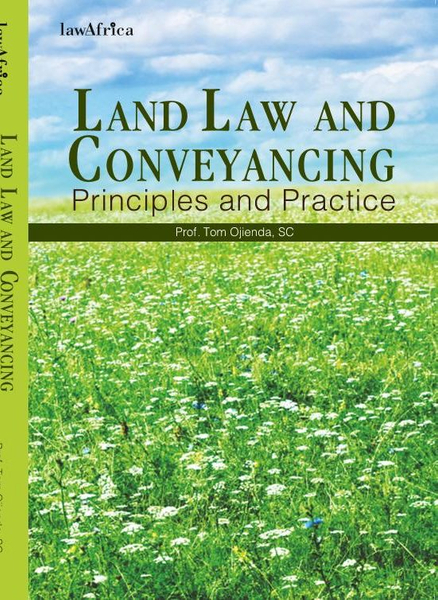
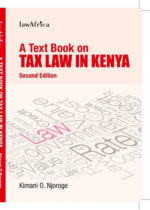

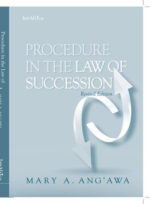
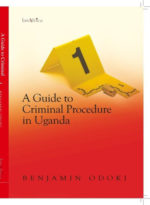
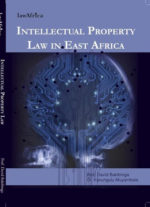
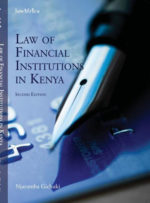


Be the first to review “Principles of Constitutional Law”